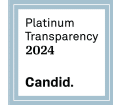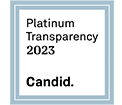Jhon Wajai is a member of the Shuar Indigenous People of Ecuador and Peru. He provides technical and political support to Indigenous Peoples’ organizations in the Amazon region, including CONFENIAE, Confederation of Indigenous Nationalities of the Ecuadorian Amazon, and COICA, Coordinator of Indigenous Organizations of the Amazon River Basin. After participating in the Indigenous Community Workshop in San Pablo, Ecuador on July 31, he wrote the following refection on Indigenous Peoples' rights and the EO100™ Standard.
For indigenous peoples, the past remains like a footprint in history, providing context and allowing for deep reflection as we face new realities and challenges. As our leaders prepare for transitions and begin new discussions, they attempt to meet the needs of new generations with dignity, and call into action the rights that have been granted through local, national and international legislation.
Communities of various indigenous nationalities have faced the greatest suffering of their lives in the form of social, cultural, environmental and family difficulties brought on by actions of the oil and gas industry. In light of this, communities and their leaders have recently taken an important positive step in dealing with the industry. These communities have created space for dialogue and internal debate, with the clear purpose of overcoming inequalities caused by the actions of oil and gas companies and seeking out the most effective way to exercise collective rights to participate in the oil and gas development activities taking place on their ancestral lands.
It is hugely significant for indigenous communities to have been a part of the construction of an innovative EO100™ Standard, which includes components relating to their rights. More importantly, communities have been able to model application of this tool for oil and gas developers to ensure that benefits of development are truly fair and honorable and help increase the wellbeing of companies, states, and Indigenous Peoples.
The Ecuadorian state has created laws and guidelines for oil and gas development that regulate the relationship between operating companies, the environment, and their social surroundings. This has guaranteed the proper functioning of the industry, but it has not managed to bring about the best social and environmental practices. The ideal outcome for oil and gas development has not been assured or guaranteed by the creation of these laws; instead, we must have a tool that allows us to reach consensus and attain the permission of local people. In practice, this procedure can become a social license to operate that is generated along with populations that are affected and involved.
The laws of nations and Latin American constitutions recognize land rights insofar as the use of and profit from the surface of the land, while everything that lies below ground is the inalienable property of the state. The indigenous nationalities of the south central Ecuadorian Amazon have been disputing land rights and the use of non-renewable natural resources (such as oil or mines) for two decades, attempting to equal the rights of our North American brothers such as the First Nations or Osage. We must retake these discussions, for the purpose of searching for the materials from which to build our life plans—plans that originate from indigenous communities and are aligned with the states’ plans for development.
It is key for indigenous nations and communities to understand the use and application of the EO100™ Standard. Often we are not familiar with the practices of the oil and gas industry and the EO100™ Standard is a useful tool to understand these sectors. From this position, we are able to propose our participation, always within the framework of the rights and principles that protect us.



